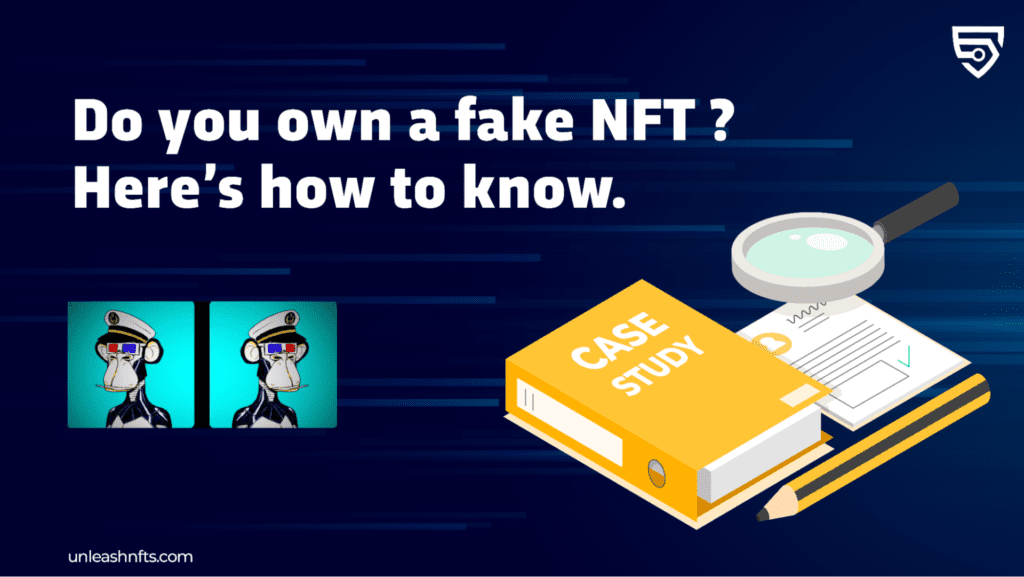You’ve probably heard that NFTs can easily be copied. This is a criticism that has been levelled against them ever since they came on the scene. However, it can’t be further from the truth. An NFT, by nature, remains unique. Its rarity gives it value, making it a digital certificate of ownership to a specific file minted on the blockchain.
Yet, there are ways to make people think that the NFT they are purchasing is in fact the original one, while the file it represents can be an image that has simply been copied off the original.
These are copycat NFTs which create confusion over the authenticity of a specific piece of art, and consequently affects its value. They can be so easy to pass off as originals, and can be quite difficult to sniff out as well.
BAYC- A Case Study in Copycats
Take the popular Bored Apes Yacht Club NFT collection for example. Consisting of unique jpeg images of apes in a variety of cool gear, this collection has garnered high sales volumes and engagement since its inception.
Bored Apes NFTs have sold for nearly $2 billion as of May 2022 with a lot of scope for further volumes as new NFTs are minted.
Here’s a look at some crucial information regarding the collection’s sales since they were minted:
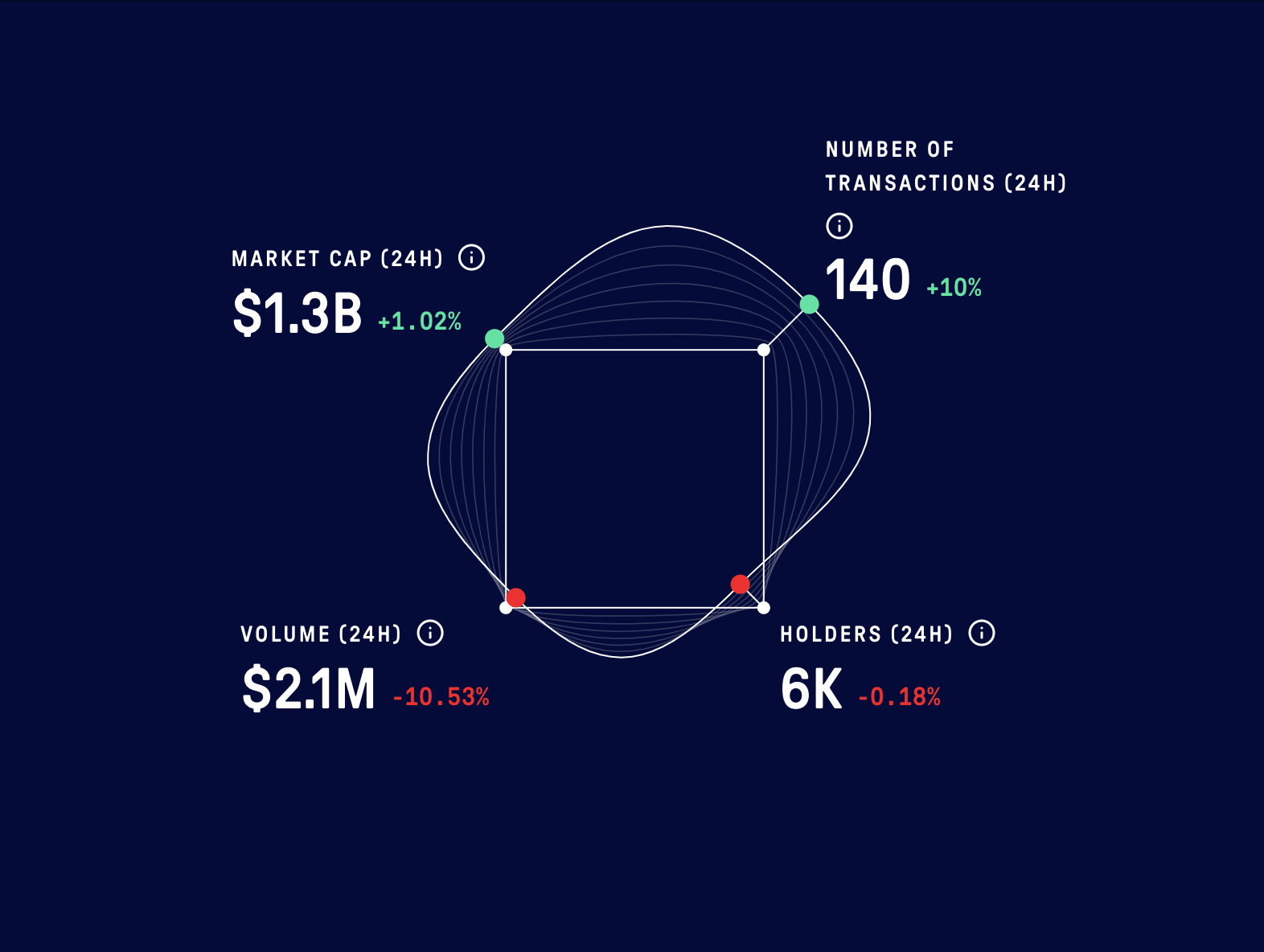
Bored Apes NFTs sell for very high amounts, making them a valuable commodity on the NFT market. Their rarity makes them very desirable, making it easy for blockchain users to fall prey to copycats. No good.
Let’s put ourselves in the shoes of a buyer. You pay a huge amount of tokens or currency to add a Bored Ape to your collection. You showcase it on your social media channels, only to find that somebody else owns the very same NFT, and even claims that it’s the original.
How do you find out which NFT is the original? Is it even possible to get your money back at this point?
If only there was a way to identify copycat NFTs from the get-go? Hmm.
How Do You Identify Copycats?
There’s good news on that front!
From the stables of bitsCrunch, Forgery Detection is an AI powered tool that sniffs popular blockchains and marketplaces for potential copycat / forged NFTs.
You can do your due diligence on an NFT with ease, gaining a lot of insights about collections and individual NFTs, along with tracing their authenticity.
For instance, an analysis of nearly 850,000 opensea storefront assets against the top 40 NFT collections on Ethereum gave us very interesting results regarding the Bored Ape collection!
We found nearly 144 exact matches from the collection, meaning that there are as many duplicate NFTs in circulation at this very moment:
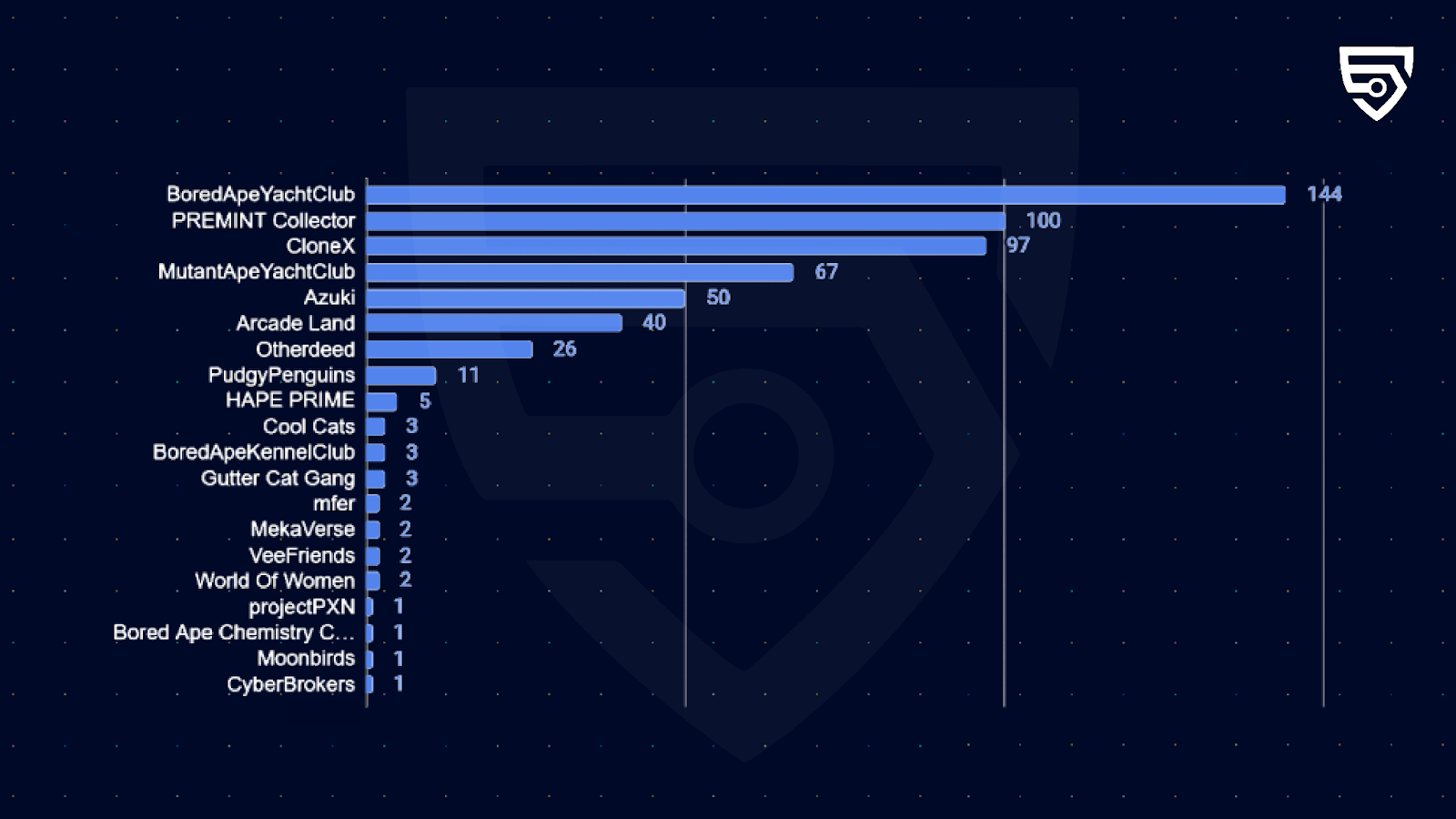
What’s more, there were 231 NFTs that were flagged as nearly exact matches, 814 NFTs that were extremely similar, and likewise we have categorised our findings into 6 buckets : Exact matches, Near exact matches, Extremely similar, Similar, Moderately similar, Mildly similar.
Overall the value impacted by these copycats with regards to just Top 40 collections in Ethereum alone sums up to 4.49M USD. Imagine what value will be impacted if we snipe through the entire blockchains available?
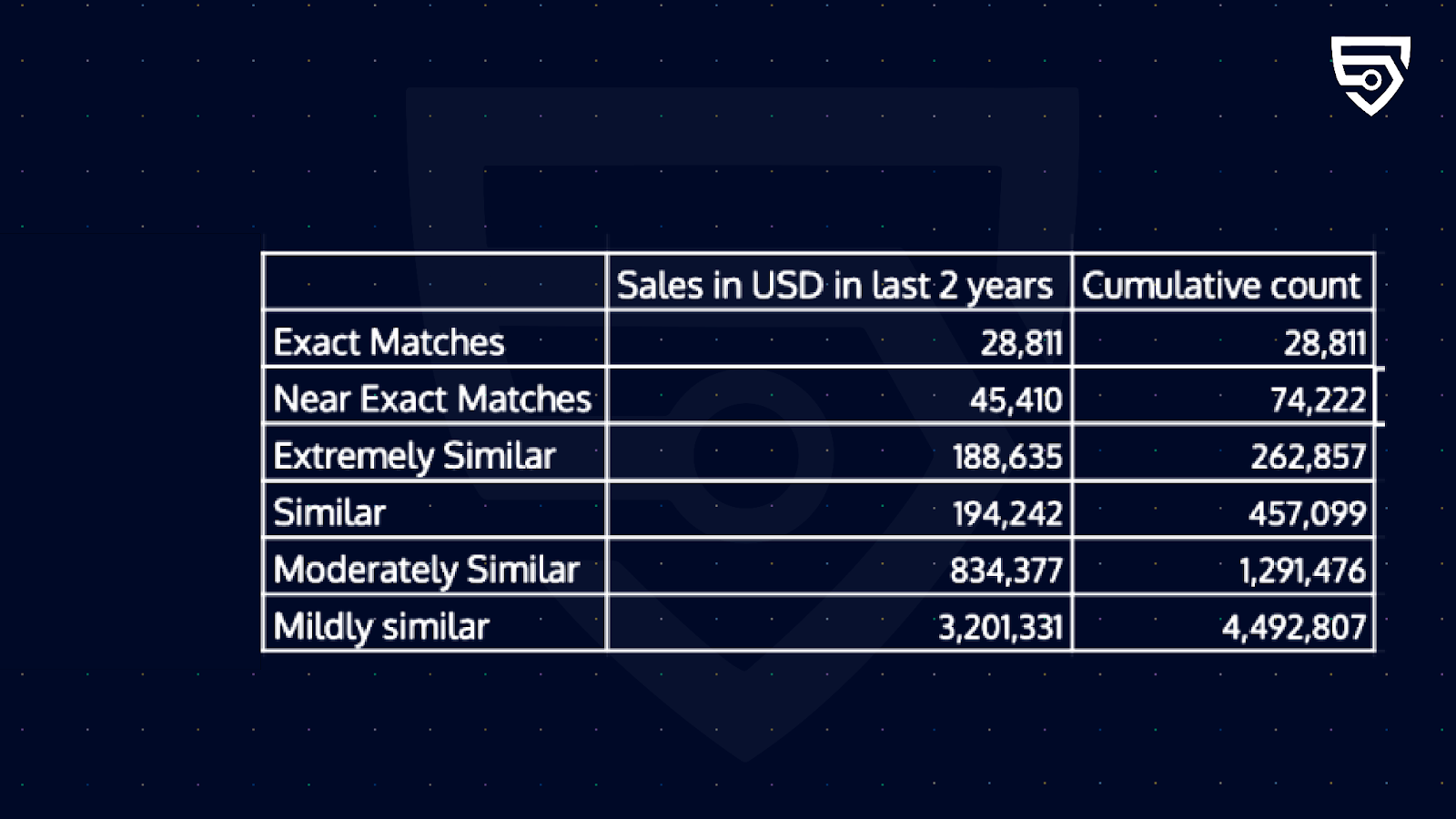
Exact Matches
Take a look at the example copycat mints of BAYC token id 840 in the Opensea marketplace.
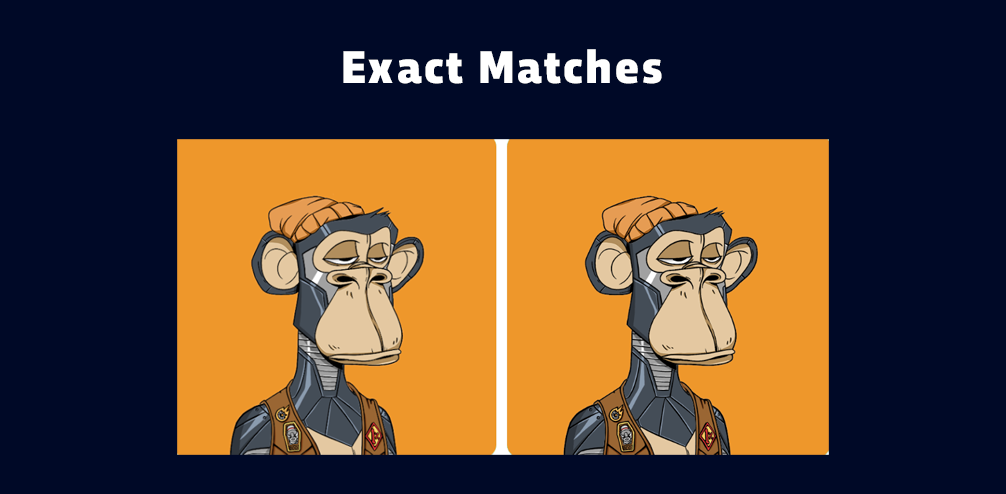
Another example from Bored Ape Chemistry Club (BACC) token id 69 !
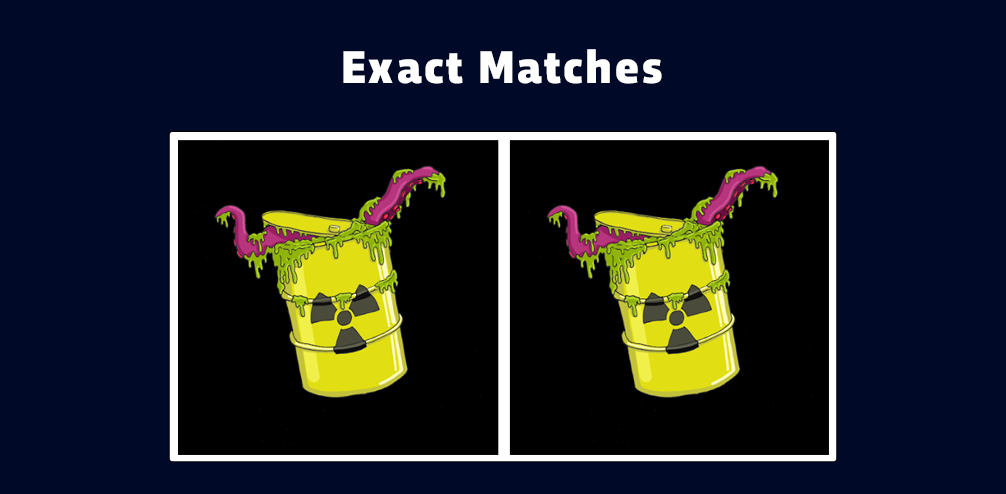
Near Exact Matches
In the below examples, you could witness the near exact matches, with minor changes to the originally minted NFT from Azuki and mfer collection.
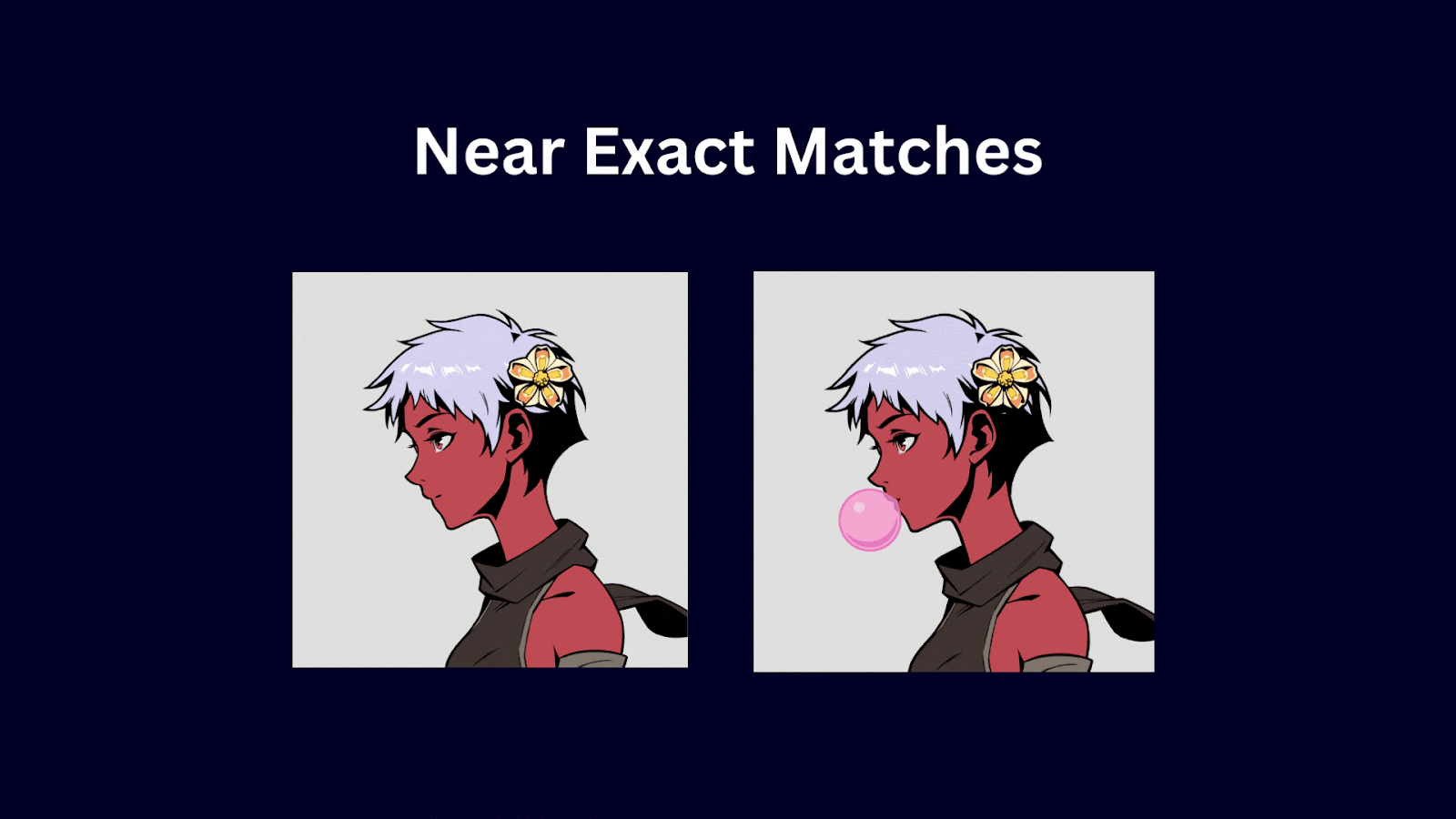
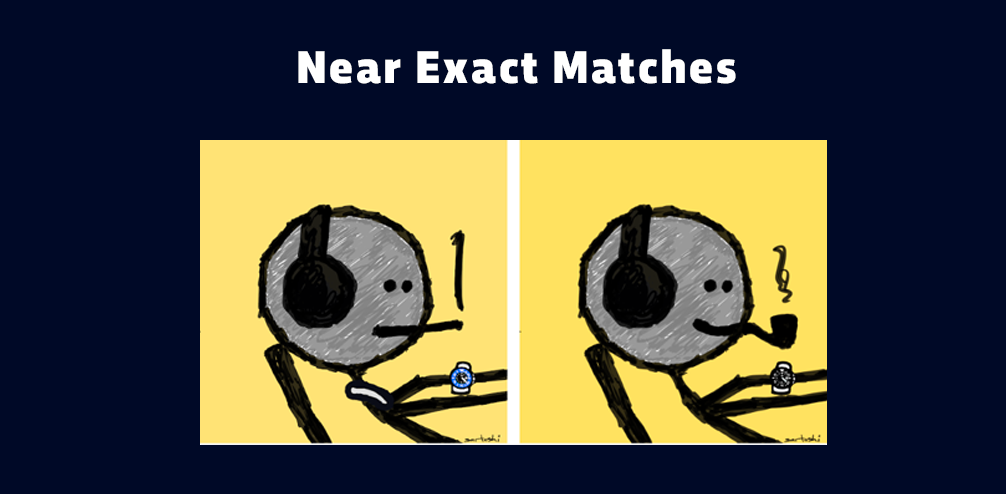
It can be very confusing for a potential NFT enthusiast / collector to find the right NFTs on the marketplace of their choice, and trace its history without the proper tools to help them.
When you think about the sheer number of popular NFTs, collections and marketplaces, coupled with an ever increasing volume of new art and concepts, it’s easy to grasp the scope of this problem!
Backtracking on the Blockchain:
bitsCrunch adds a layer of security to your searches by not only flagging copycats, but also providing you with the originating / minted wallet address linked to that NFT.
This lets you compare your specific purchase against the original minted data to verify authenticity, given that each NFT has a unique hash associated with it and the owner’s wallet at the time of minting.
If the flagged address is indeed the one that’s trying to sell you the NFT, you know that you are likely to end up with a fake.
‘With the power of our AI-enabled tools and the best of the blockchain to go with it, we aim to make copycat NFTs a thing of the past.’
As with all crypto assets, due diligence pays off, and bitsCrunch makes doing your homework all the more easy. Without further ado, check our Unleash NFTs and get in touch with us.
The post Do you own a fake NFT? Here’s how to know. appeared first on bitsCrunch.
